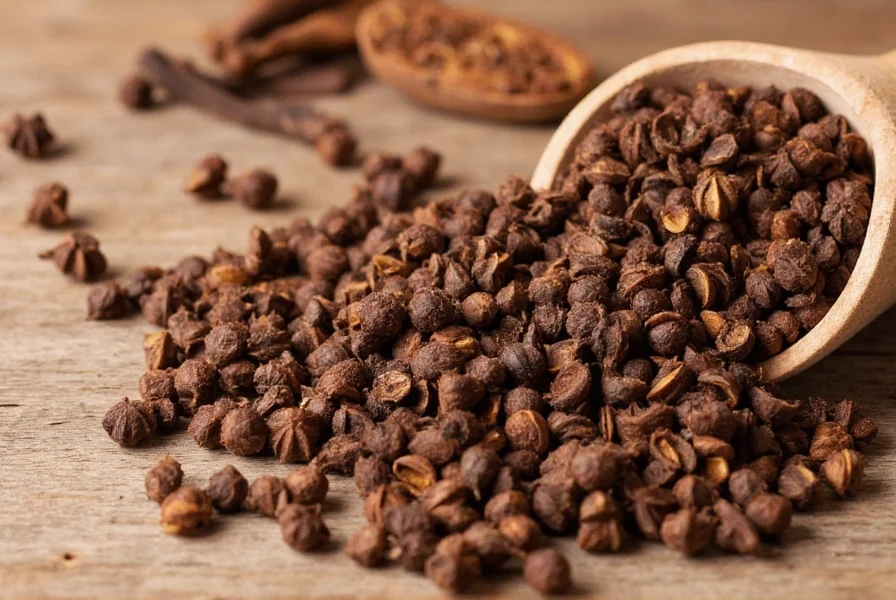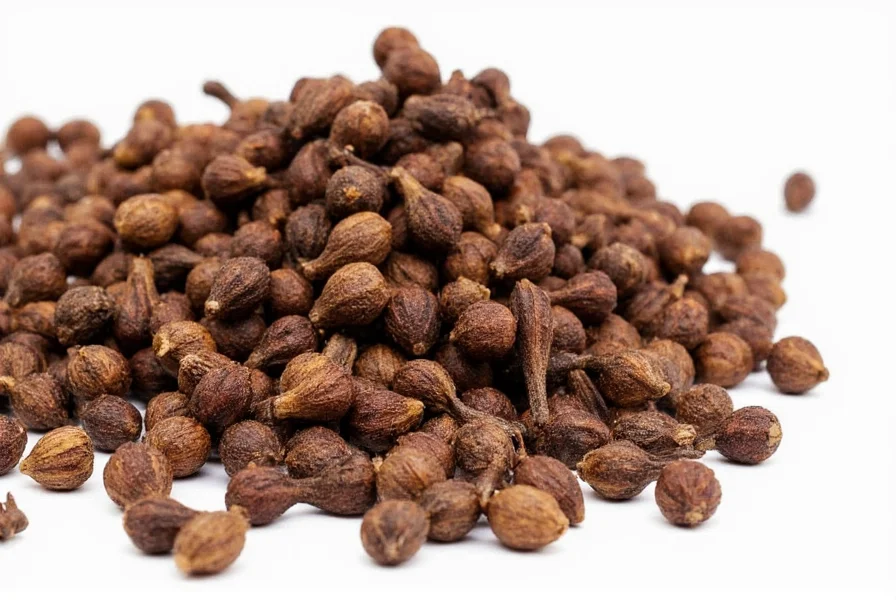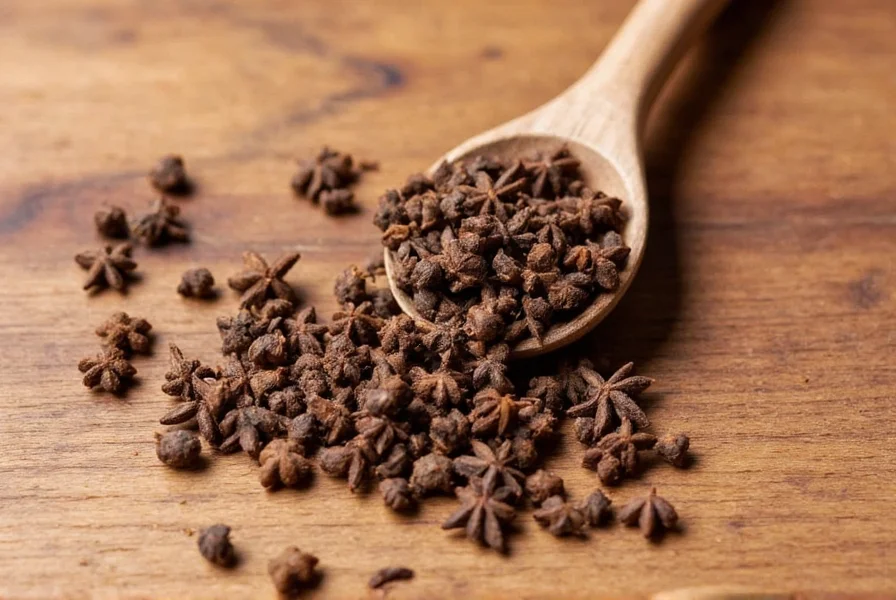When you're in the middle of cooking and realize you've run out of cloves, knowing reliable alternatives can save your recipe. Cloves offer a distinctive warm, sweet, and slightly peppery flavor that's essential in many dishes, from holiday baked goods to savory stews. Understanding proper substitution ratios and flavor profiles ensures your culinary creations maintain their intended taste without compromising quality.
Understanding Cloves and Their Unique Flavor Profile
Cloves come from the dried flower buds of the Syzygium aromaticum tree and contain eugenol, which gives them their characteristic pungent, warm, and slightly sweet flavor with hints of citrus and bitterness. This complex profile makes them challenging to replace perfectly, but several common pantry staples can effectively mimic their essence in different applications.
Top 6 Cloves Substitutes with Exact Ratios
Choosing the right substitute depends on whether you're preparing sweet or savory dishes. Here's a detailed comparison of your best options:
| Substitute | Ratio (for 1 tsp cloves) | Best For | Flavor Notes |
|---|---|---|---|
| Allspice | 3/4 tsp | Savory dishes, mulled wine | Warm, peppery, with clove-like notes |
| Cinnamon | 1 tsp | Baking, desserts | Sweeter, less intense, missing peppery notes |
| Nutmeg | 1/2 tsp | Sauces, custards, mashed potatoes | Milder, earthier, less sweet |
| Pumpkin Pie Spice | 1 tsp | Pies, breads, cookies | Pre-mixed blend with similar warming spices |
| Apple Pie Spice | 1 tsp | Fruit desserts, compotes | Slightly sweeter than pumpkin spice |
| Cardamom | 3/4 tsp | Indian cuisine, coffee, baked goods | Citrusy, floral notes with warmth |
Choosing the Right Substitute by Dish Type
Not all substitutes work equally well across different recipes. Consider these specific recommendations when looking for what to substitute for cloves in your particular dish.
For Baking and Desserts
When baking cookies, cakes, or pies that call for cloves, cinnamon makes the most seamless transition. Use an equal amount of ground cinnamon for ground cloves. For recipes where cloves play a starring role (like gingerbread), combine 1/2 teaspoon cinnamon with 1/4 teaspoon nutmeg per teaspoon of cloves required. This cloves alternative maintains the warm spice profile while compensating for cinnamon's sweeter, less complex flavor.

For Savory Dishes and Stews
In savory applications like braises, curries, or meat rubs, allspice serves as the closest cloves replacement. Its flavor profile contains natural clove-like compounds, making it ideal for dishes where cloves provide depth rather than prominence. Use 3/4 teaspoon allspice for every teaspoon of cloves. For Indian or Middle Eastern dishes, consider a blend of 1/2 teaspoon allspice with 1/4 teaspoon cardamom to better match regional flavor expectations when substituting for cloves.
For Beverages and Mulled Drinks
When making mulled wine, cider, or chai where cloves contribute significantly to the aromatic profile, pumpkin pie spice works surprisingly well as a cloves substitute. Use a 1:1 ratio, but add a pinch of black pepper to restore some of the missing heat that cloves normally provide. For a more authentic mulled drink experience without cloves, combine equal parts cinnamon, nutmeg, and allspice.
Advanced Substitution Techniques
For recipes where cloves play a critical role, consider these professional techniques to maximize flavor accuracy when you need a cloves alternative:
- Layered substitution: Combine 1/2 tsp cinnamon + 1/4 tsp nutmeg + 1/4 tsp allspice to replace 1 tsp cloves for complex dishes
- Whole spice alternatives: When a recipe calls for whole cloves (like in pickling), use whole allspice berries at a 1:1 ratio
- Flavor balancing: If using cinnamon as your primary cloves substitute, add a pinch of black pepper to restore some heat
- Acid adjustment: Cloves contain natural acidity; when substituting in fruit dishes, add 1/8 tsp lemon zest per teaspoon of cloves replaced
When Not to Substitute Cloves
While these alternatives work well in most situations, certain recipes rely so heavily on cloves' unique chemistry that substitutes significantly alter the final product. Avoid substituting when making:
- Traditional speculaas or pain d'épices (European spiced cookies)
- Authentic biryani rice dishes where cloves provide distinct floral notes
- Homemade chai blends where cloves balance other spices
- Preserves like clove-studded oranges or spiced pickles
In these cases, consider making a quick trip to the store or adjusting your recipe timeline rather than using a substitute that might compromise authenticity.
Storing Your Substitute Spices Properly
Since you're likely reaching for substitute spices when cloves run out, proper storage ensures these alternatives maintain maximum flavor. Store ground spices in airtight containers away from light and heat. Whole spices like allspice berries retain potency for up to 4 years, while ground substitutes stay fresh for 6-12 months. For the best flavor when substituting for cloves, toast whole substitute spices (like allspice berries) in a dry pan for 1-2 minutes before grinding—this enhances their aromatic compounds and creates a more accurate cloves alternative.

Creating Your Own Custom Clove Substitute Blend
For frequent cooking needs, create a dedicated cloves replacement blend that stays fresh in your pantry. Combine:
- 2 parts ground cinnamon
- 1 part ground allspice
- 1 part ground nutmeg
- 1/4 part ground black pepper
Store this mixture in an airtight container for up to 6 months. Use a 1:1 ratio when replacing cloves in most recipes. This custom blend works particularly well as a cloves substitute in baking applications and provides consistent results across multiple recipes.











 浙公网安备
33010002000092号
浙公网安备
33010002000092号 浙B2-20120091-4
浙B2-20120091-4